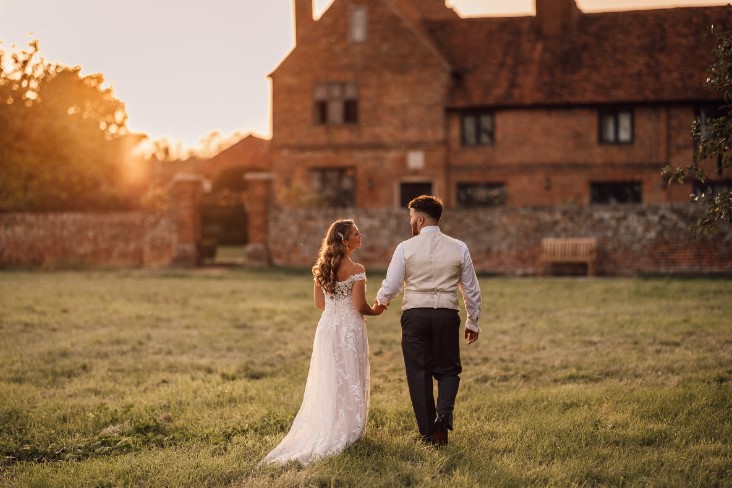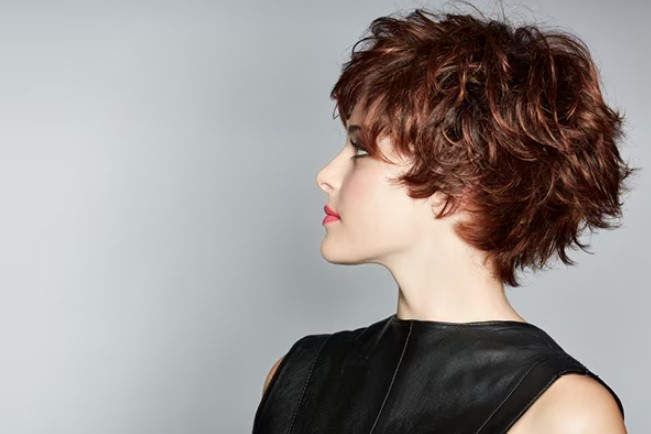
Weddings are momentous occasions, filled with love, joy, and the promise of a lifetime together. One of the most crucial aspects of any wedding is capturing these precious moments through the lens of a skilled photographer. In this article, we’ll explore the world of wedding photography, guiding you through the process of choosing the right photographer, understanding your style, and ensuring a smooth experience from pre-wedding consultation to post-wedding services.
Importance of Wedding Photography
Your wedding day is a celebration of love, and what better way to preserve those beautiful memories than through photographs? Wedding photography goes beyond simply documenting the events; it captures the emotions, the laughter, and the love that make your day unique. A skilled wedding photographer has the ability to freeze those fleeting moments in time, allowing you to relive them for years to come.
Choosing the Right Photographer
Researching Photographers
Before diving into the world of wedding photography, take the time to research and shortlist potential photographers. Explore their websites, social media profiles, and portfolios to get a sense of their style and expertise. Look for consistency in their work and a portfolio that aligns with your vision for your wedding day.
Portfolio Evaluation
A photographer’s portfolio is a window into their skill and creativity. Pay attention to the composition, lighting, and storytelling evident in their previous work. A diverse portfolio that showcases various wedding styles and settings is a positive sign, indicating adaptability and expertise.
Client Testimonials
Word of mouth is a powerful tool in the wedding industry. Seek out client testimonials and reviews to gauge the experiences of previous couples. A photographer with a history of satisfied clients is more likely to provide a positive and stress-free experience for your own wedding.
Understanding Your Style
Traditional vs. Candid Photography
Wedding photography can be categorized into traditional and candid styles. Traditional photography involves posed shots and formal group portraits, while candid photography captures spontaneous moments. Consider which style aligns with your personality and preferences, or whether a blend of both would suit your vision.
Discussing Preferences with the Photographer
Once you’ve identified your preferred style, communicate openly with your chosen photographer. Share your expectations, discuss specific shots you desire, and ask for their input based on their experience. A collaborative approach ensures that the photographer understands your vision and can tailor their services accordingly.
Setting a Realistic Budget
Average Wedding Photography Costs
Wedding photography costs can vary significantly, depending on factors such as the photographer’s experience, location, and package inclusions. Research average costs in your area to establish a realistic budget. While it’s tempting to cut costs, investing in a skilled photographer is crucial for capturing high-quality, timeless images.
Value for Money
Consider photography not just as an expense but as an investment in memories. Skimping on photography may lead to disappointment in the long run. Look for photographers who offer value for money, providing a balance between quality and affordability.
Pre-Wedding Consultation
Importance of a Consultation
A pre-wedding consultation with your chosen photographer is an essential step in ensuring a seamless experience. Use this opportunity to discuss your wedding details, share your preferences, and establish a rapport. A comfortable relationship with your photographer contributes to a relaxed atmosphere on the big day.
Building a Rapport with the Photographer
Building a connection with your photographer goes beyond the technical aspects of the job. A photographer who understands your personalities and dynamics as a couple can capture more authentic and intimate moments. Take the time to connect on a personal level during the consultation.
The Big Day: Capturing Every Moment
Ceremony Coverage
On your wedding day, the photographer’s role extends beyond clicking pictures; they become storytellers. Ensure that your photographer is well-versed in capturing the essence of your ceremony, from the emotional exchange of vows to the joyous celebration with family and friends.
Reception Highlights
As the day progresses to the reception, the photographer’s focus shifts to candid moments and the overall atmosphere. Ensure that your photographer is equipped to handle low-light conditions and capture the energy of the celebration.
Candid Moments
Some of the most cherished wedding photos are candid moments that reflect genuine emotions. A skilled photographer has the ability to blend into the background, capturing the unscripted moments that make your wedding unique. Discuss your preferences for candid shots with your photographer in advance.
Post-Production Magic
Editing Techniques
Post-production is a crucial phase in wedding photography. Skilled editing enhances the visual appeal of images, providing a polished and professional look. Inquire about the photographer’s editing techniques and the level of retouching included in their services.
Deliverables and Timelines
Clarify the expected timelines for receiving your wedding photos and the format in which they will be delivered. Discuss any specific editing requests or adjustments you’d like to make, ensuring that the final deliverables meet your expectations.
Sharing Your Story: Photo Albums and Social Media
Creating a Stunning Photo Album
A well-curated photo album is a tangible keepsake that allows you to relive your wedding day. Work with your photographer to create an album that tells the story of your day, from getting ready to the final dance. Choose high-quality materials and a design that complements your wedding theme.
Social Media Sharing Etiquette
In the digital age, sharing wedding photos on social media is common. Discuss with your photographer any preferences or restrictions you may have regarding the online sharing of your images. Some couples prefer to keep certain moments private, while others embrace sharing the joy with a wider audience.
Dealing with Unexpected Situations
Weather Challenges
Outdoor weddings come with the risk of unpredictable weather. Discuss contingency plans with your photographer to ensure that they are prepared for unexpected challenges. A seasoned photographer will adapt to changing conditions while ensuring the safety of their equipment.
Equipment Failures
Equipment failures can happen, but a professional photographer is equipped to handle such situations. Inquire about backup equipment and contingency plans to ensure that technical issues don’t disrupt the flow of capturing your special day.
Destination Weddings and Special Considerations
Planning for a Destination Wedding
Destination weddings add an extra layer of complexity to wedding photography. If you’re planning a destination wedding, choose a photographer with experience in that specific setting. Familiarity with the location ensures that the photographer can navigate unique challenges and capture the essence of the destination.
Logistics and Additional Costs
Discuss logistics and any additional costs associated with a destination wedding. This may include travel expenses, accommodation, and permits if the location requires special permissions. Clear communication and planning in advance help avoid any surprises on the big day.
Tips for a Photogenic Wedding
Choosing the Right Venue
The venue sets the stage for your wedding photos. Choose a venue that complements your style and provides diverse backdrops for photography. Whether it’s a scenic outdoor setting or an elegant indoor space, the right venue enhances the visual appeal of your wedding photos.
Coordinating Colors and Themes
Coordinate your wedding colors and themes to create a cohesive visual experience. Discuss your color palette with the photographer to ensure that their approach aligns with the overall aesthetic of your wedding. A harmonious color scheme enhances the beauty of your photos.
Keeping Up with Trends
Popular Wedding Photography Trends
The world of wedding photography evolves, with new trends emerging regularly. Stay updated on the latest trends, from creative photo angles to innovative editing styles. While timeless classics never go out of style, incorporating current trends adds a contemporary touch to your wedding album.
Timeless Classics
While trends come and go, timeless classics remain enduringly beautiful. Discuss with your photographer the balance between trendy and timeless, ensuring that your wedding album reflects both the current moment and the timeless beauty of your love story.
Post-Wedding Services
Anniversary Shoots
Celebrate your love story beyond the wedding day with anniversary shoots. Many couples choose to continue their photography journey with the same photographer for post-wedding sessions. These sessions capture the ongoing chapters of your life together.
Family Photo Sessions
As your family grows, consider scheduling family photo sessions with your wedding photographer. Continuing the relationship ensures consistency in capturing your family’s milestones and creates a visual timeline of your journey together.
Ensuring a Smooth Experience
Communication Throughout the Process
Effective communication is key to a smooth photography experience. Maintain an open line of communication with your photographer from the initial consultation to the delivery of your photos. Address any concerns or preferences promptly to ensure a positive collaboration.
Providing Feedback
After your wedding, provide feedback to your photographer. Acknowledge the aspects you loved and offer constructive feedback on areas for improvement. This not only helps the photographer refine their skills but also contributes to their continuous growth.
Conclusion
Your wedding day is a chapter in your love story, and wedding photography is the art of preserving that chapter in visual form. Choosing the right photographer, understanding your style, and navigating the intricacies of the process ensure that your wedding photos are a true reflection of your unique journey together. Invest time in research, communication, and collaboration to make the most of this special day’s visual storytelling.
FAQs
- How far in advance should I book my wedding photographer?
- It’s advisable to book your wedding photographer at least 6-12 months in advance to secure your desired date.
- What should I wear for my engagement shoot?
- Wear outfits that reflect your personal style and complement each other. Avoid overly matching or clashing colors.
- How can I make the most of my pre-wedding consultation?
- Come prepared with a list of questions, share your vision, and be open to the photographer’s suggestions.
- Do I need a second photographer for my wedding?
- While not mandatory, a second photographer can capture additional angles and moments, providing a more comprehensive story.
-
Can I request specific edits to my wedding photos?
- Yes, most photographers are open to accommodating specific editing requests to ensure your satisfaction.

